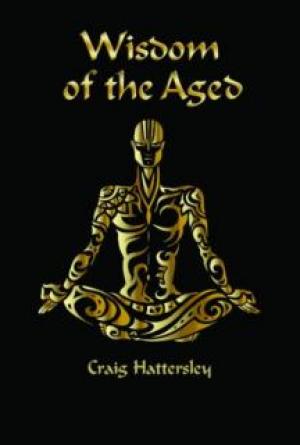The After-Life in Memory
An hour or so after the shooting a dead-wagon from San Juan de Dios Hospital took Rizal's body to Paco Cemetery. The civil governor of Manila was in charge and there also were present the members of a Church society whose duty it was to attend executions.
Rizal had been wearing a black suit which he had obtained for his European trip, and a derby hat, not only appropriate for a funeral occasion because of their somber color, but also more desirable than white both for the full day's wear, since they had to be put on before the twenty-four hours in the chapel, and for the lying on the ground which would follow the execution of the sentence. A plain box inclosed the remains thus dressed, for even the hat was picked up and encoffined.
No visitors were admitted to the cemetery while the interment was going on, and for several weeks after guards watched over the grave, lest Filipinos might come by night to steal away the body and apportion the clothing among themselves as relics of a martyr. Even the exact spot of the interment was intended to be unknown, but friends of the family were among the attendants at the burial and dropped into the grave a marble slab which had been furnished them, bearing the initials of the full baptismal name, Jose Protasio Rizal, in reversed order.
The entry of the burial, like that of three of his followers of the Liga Filipina who were among the dozen executed a fortnight later, was on the back flyleaf of the cemetery register, with three or four words of explanation later erased and now unknown. On the previous page was the entry of a suicide's death, and following it is that of the British Consul who died on the eve of Manila's surrender and whose body, by the Archbishop's permission, was stored in a Paco niche till it could be removed to the Protestant (foreigners') cemetery at San Pedro Macati.
The day of Rizal's execution, the day of his birth and the day of his first leaving his native land was a Wednesday. All that night, and the next day, the celebration continued the volunteers, who were particularly responsible, like their fellows in Cuba, for the atrocities which disgraced Spain's rule in the Philippines, being especially in evidence. It was their clamor that had made the bringing back of Rizal possible, their demands for his death had been most prominent in his so-called trial, and now they were praising themselves for their "patriotism." The landlords had objected to having their land titles questioned and their taxes raised. The other friar orders, as well as these, were opposed to a campaign which sought their transfer from profitable parishes to self-sacrificing missionary labors. But probably none of them as organizations desired Rizal's death.
Rizal's old teachers wished for the restoration of their former pupil to the faith of his childhood, from which they believed he had departed. Through Despujol they seem to have worked for an opportunity for influencing him, yet his death was certainly not in their plans.
Some Filipinos, to save themselves, tried to complicate Rizal with the Katipunan uprising by palpable falsehoods. But not every man is heroic and these can hardly be blamed, for if all the alleged confessions were not secured by actual torture, they were made through fear of it, since in 1896 there was in Manila the legal practice of causing bodily suffering by mediaval methods supplemented by torments devised by modern science.
Among the Spaniards in Manila then, reenforced by those whom the uprising had frightened out of the provinces, were a few who realized that they belonged among the classes caricatured in Rizal's novels-some incompetent, others dishonest, cruel ones, the illiterate, wretched specimens that had married outside their race to get money and find wives who would not know them for what they were, or drunken husbands of viragoes. They came to the Philippines because they were below the standard of their homeland. These talked the loudest and thus dominated the undisciplined volunteers. With nothing divine about them, since they had not forgotten, they did not forgive. So when the Tondo "discoverer" of the Katipunan fancied he saw opportunity for promotion in fanning their flame of wrath, they claimed their victims, and neither the panic-stricken populace nor the weak-kneed government could withstand them.
Once more it must be repeated that Spain has no monopoly of bad characters, nor suffers in the comparison of her honorable citizenship with that of other nationalities, but her system in the Philippines permitted abuses which good governments seek to avoid or, in the rare occasions when this is impossible, aim to punish. Here was the Spanish shortcoming, for these were the defects which made possible so strange a story as this biography unfolds. "Jose Rizal," said a recent Spanish writer, "was the living indictment of Spain's wretched colonial system."
Rizal's family were scattered among the homes of friends brave enough to risk the popular resentment against everyone in any way identified with the victim of their prejudice.
As New Year's eve approached, the bands ceased playing and the marchers stopped parading. Their enthusiasm had worn itself out in the two continuous days of celebration, and there was a lessening of the hospitality with which these "heroes" who had "saved the fatherland" at first had been entertained. Their great day of the year became of more interest than further remembrance of the bloody occurrence on Bagumbayan Field. To those who mourned a son and a brother the change must have come as a welcome relief, for even sorrow has its degrees, and the exultation over the death embittered their grief.
To the remote and humble home where Rizal's widow and the sister to whom he had promised a parting gift were sheltered, the Dapitan schoolboy who had attended his imprisoned teacher brought an alcohol cooking-lamp. It was midnight before they dared seek the "something" which Rizal had said was inside. The alcohol was emptied from the tank and, with a convenient hairpin, a tightly folded and doubled piece of paper was dislodged from where it had been wedged in, out of sight, so that its rattling might not betray it.
It was a single sheet of notepaper bearing verses in Rizal's well-known handwriting and familiar style. Hastily the young boy copied them, making some minor mistakes owing to his agitation and unfamiliarity with the language, and the copy, without explanation, was mailed to Mr. Basa in Hongkong. Then the original was taken by the two women with their few possessions and they fled to join the insurgents in Cavite.
The following translation of these verses was made by Charles Derbyshire:
My Last Farewell
Farewell, dear Fatherland, clime of the sun caress'd, Pearl of the Orient seas, our Eden lost!
Gladly now I go to give thee this faded life's best, And were it brighter, fresher, or more blest, Still would I give it thee, nor count the cost.
On the field of battle, 'mid the frenzy of fight,
Others have given their lives, without doubt or heed; The place matters not-cypress or laurel or lily white, Scaffold of open plain, combat or martyrdom's plight, 'Tis ever the same, to serve our home and country's need.
I die just when I see the dawn break,
Through the gloom of night, to herald the day; And if color is lacking my blood thou shalt take, Pour'd out at need for thy dear sake,
To dye with its crimson the waking ray.
My dreams, when life first opened to me, My dreams, when the hopes of youth beat high, Were to see thy lov'd face, O gem of the Orient sea, From gloom and grief, from care and sorrow free; No blush on thy brow, no tear in thine eye
Dream of my life, my living and burning desire, All hail! cries the soul that is now to take flight; All hail! And sweet it is for thee to expire; To die for thy sake, that thou mayst aspire; And sleep in thy bosom eternity's long night. If over my grave some day thou seest grow, In the grassy sod, a humble flower,
Draw it to thy lips and kiss my soul so,
While I may feel on my brow in the cold tomb below The touch of thy tenderness, thy breath's warm power.
Let the moon beam over me soft and serene, Let the dawn shed over me its radiant flashes, Let the wind with sad lament over me keen; And if on my cross a bird should be seen, Let it trill there its hymn of peace to my ashes.
Let the sun draw the vapors up to the sky, And heavenward in purity bear my tardy protest; Let some kind soul o'er my untimely fate sigh, And in the still evening a prayer be lifted on high From thee, O my country, that in God I may rest.
Pray for all those that hapless have died,
For all who have suffered the unmeasur'd pain; For our mothers that bitterly their woes have cried, For widows and orphans, for captives by torture tried; And then for thyself that redemption thou mayst gain.
And when the dark night wraps the graveyard around, With only the dead in their vigil to see;
Break not my repose or the mystery profound, And perchance thou mayst hear a sad hymn resound; 'Tis I, O my country, raising a song unto thee.
When even my grave is remembered no more, Unmark'd by never a cross nor a stone;
Let the plow sweep through it, the spade turn it o'er, That my ashes may carpet thy earthly floor, Before into nothingness at last they are blown. Then will oblivion bring to me no care,
As over thy vales and plains I sweep;
Throbbing and cleansed in thy space and air, With color and light, with song and lament I fare, Ever repeating the faith that I keep.
My Fatherland ador'd, that sadness to my sorrow lends, Beloved Filipinas, hear now my last good-by! I give thee all: parents and kindred and friends; For I go where no slave before the oppressor bends, Where faith can never kill, and God reigns e'er on high!
Farewell to you all, from my soul torn away,
Friends of my childhood in the home dispossessed! Give thanks that I rest from the wearisome day! Farewell to thee, too, sweet friend that lightened my way; Beloved creatures all, farewell! In death there is rest!
For some time such belongings of Rizal as had been intrusted to Josefina had been in the care of the American Consul in Manila for as the adopted daughter of the American Taufer she had claimed his protection. Stories are told of her as a second Joan of Arc, but it is not likely that one of the few rifles which the insurgents had would be turned over to a woman. After a short experience in the field, much of it spent in nursing her sister-inlaw through a fever, Mrs. Rizal returned to Manila. Then came a brief interview with the Governor-General. He had learned that his "administrative powers" to exile without trial did not extend to foreigners, but by advice of her consul she soon sailed for Hongkong.
Mrs. Rizal at first lived in the Basa home and received considerable attention from the Filipino colony. There was too great a difference between the freedom accorded Englishwomen and the restraints surrounding Spanish ladies however, to avoid difficulties and misunderstandings, for very long. She returned to her adopted father's house and after his death married Vicente Abad, a Cebuan, son of a Spaniard who had been prominent in the Tabacalera Company and had become an agent of theirs in Hongkong after he had completed his studies there.
Two weeks after Rizal's execution a dozen other members of his "Liga Filipina" were executed on the Luneta. One was a millionaire, Francisco Roxas, who had lost his mind, and believing that he was in church, calmly spread his handkerchief on the ground and knelt upon it as had been his custom in childhood. An old man, Moises Salvador, had been crippled by torture so that he could not stand and had to be laid upon the grass to be shot. The others met their death standing.
That bravery and cruelty do not usually go together was amply demonstrated in Polavieja's case and by the volunteers. The latter once showed their patriotism, after a banquet, by going to the water's edge on the Luneta and firing volleys at the insurgents across the bay, miles away. The General was relieved of his command after he had fortified a camp with siege guns against the bolo-armed insurgents, who, however, by captures from the Spaniards were gradually becoming better equipped. But he did not escape condemnation from his own countrymen, and when he visited Giron, years after he had returned to the Peninsula, circulars were distributed among the crowd, bearing Rizal's last verses, his portrait, and the charge that to Polavieja was due the loss of the Philippines to Spain.
The Katipunan insurgents in time were bought off by General Primo de Rivera, once more returned to the Islands for further plunder. The money question does not concern Rizal's life, but his prediction of suffering to the country came true, for while the leaders with the first payment and hostages for their own safety sailed away to live securely in Hongkong, the poorer people who remained suffered the vengeance of a government which seems never to have kept a promise to its people. Whether reforms were pledged is disputed, but if any were, they never were put into effect. No more money was paid, and the first instalment, preserved by the prudent leaders, equipped them when, owing to Dewey's victory, they were enabled to return to their country.
On the first anniversary of Rizal's execution some Spaniards desecrated the grave, while on one of the niches, rented for the purpose, many feet away, the family hung wreaths with Tagalog dedications but no name.
August 13, 1898, the Spanish flag came down from Fort Santiago in evidence of the surrender of the city. At the first opportunity Paco Cemetery was visited and Rizal's body raised for a more decent interment. Vainly his shoes were searched for a last message which he had said might be concealed there, for the dampness had made any paper unrecognizable. Then a simple cross was erected, resting on a marble block carved, as had been the smaller one which secretly had first marked the spot, with the reversed initials "R. P. J."
The first issue of a Filipino newspaper under the new government was entirely dedicated to Rizal. The second anniversary of his execution was observed with general unanimity, his countrymen demonstrating that those who were seeing the dawn of the new day were not forgetful of the greatest of those who had fallen in the night, to paraphrase his own words.
His widow returned and did live by giving lessons in English, at first privately in Cebu, where one of her pupils was the present and first Speaker of the Philippine Assembly, and afterwards as a government employee in the public schools and in the "Liceo" of Manila. With the establishment of civil government a new province was formed near Manila, including the land across the lake to which, as a lad in Kalamba, Rizal had often wonderingly looked, and the name of Rizal Province was given it.
Later when public holidays were provided for by the new laws, the anniversary of Rizal's execution was in the list, and it has become the great day of the year, with the entire community uniting, for Spaniards no longer consider him to have been a traitor to Spain and the American authorities have founded a government in conformity with his teachings.
On one of these occasions, December 30, 1905, William Jennings Bryan, "The Great American Commoner," gave the Rizal Day address, in the course of which he said:
"If you will permit me to draw one lesson from the life of Rizal, I will say that he presents an example of a great man consecrated to his country's welfare. He, though dead, is a living rebuke to the scholar who selfishly enjoys the privilege of an ample education and does not impart the benefits of it to his fellows. His example is worth much to the people of these Islands, to the child who reads of him, to the young and old."
The fiftieth anniversary of Rizal's birth was observed throughout the Archipelago with exercises in every community by public schools now organized along the lines he wished, to make self-dependent, capable men and women, strong in body as in mind, knowing and claiming their own rights, and recognizing and respecting those of others.
His father died early in the year that the flags changed, but the mother lived to see honor done her son and to prove herself as worthy, for when the Philippine Legislature wanted to set aside a considerable sum for her use, she declined it with the true and rightfully proud assertion, that her family had never been patriotic for money. Her funeral, in 1911, was an occasion of public mourning, the Governor-General, Legislature and chief men of the Islands attending, and all public business being suspended by proclamation for the day.
A capitol for the representatives of the free people of the Philippines, and worthy of the pioneer democratic government in the Orient, is soon to be erected on the Luneta, facing the big Rizal monument which will mark the place of execution of the man who gave his life to prepare his countrymen for the changed conditions.
The Tagalog Story of the Monkey and the Tortoise Illustrated by Jose Rizal
N
OTE
An English version of this story entitled "The foolish monkey and the wise turtle" is found in The First Year Book published by The World Book Company of New York and Manila.
The Novels of Jose Rizal Translated from Spanish into English
By
Charles Derbyshire
The Social Cancer (Noli me Tangere) Price 3.00 Pesos
The Reign of Greed (El Filibusterismo) Price 2.75 Pesos
"A complete picture of the Philippines under the old regime. Their appearance ... is noteworthy as a literary event and as an important fact in the history of the American people in their world relations."-AMERICAN REVIEW OF REVIEWS.
"Here are two books that every American should read: not simply because a Malay novelist is a great curiosity, but because these romances contain a serious exposition of the conditions which prevailed in the Philippines before the American occupation."-NEW
Y
ORK N
ATION.
"The best, because the most far-reaching memorial to Rizal is the translations of his picturesque novels of Filipino life."-C
URRENT O
PINION.
M
ANILA
PHILIPPINE EDUCATION COMPANY







